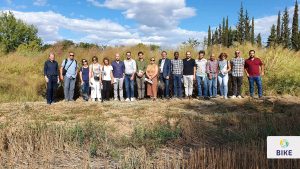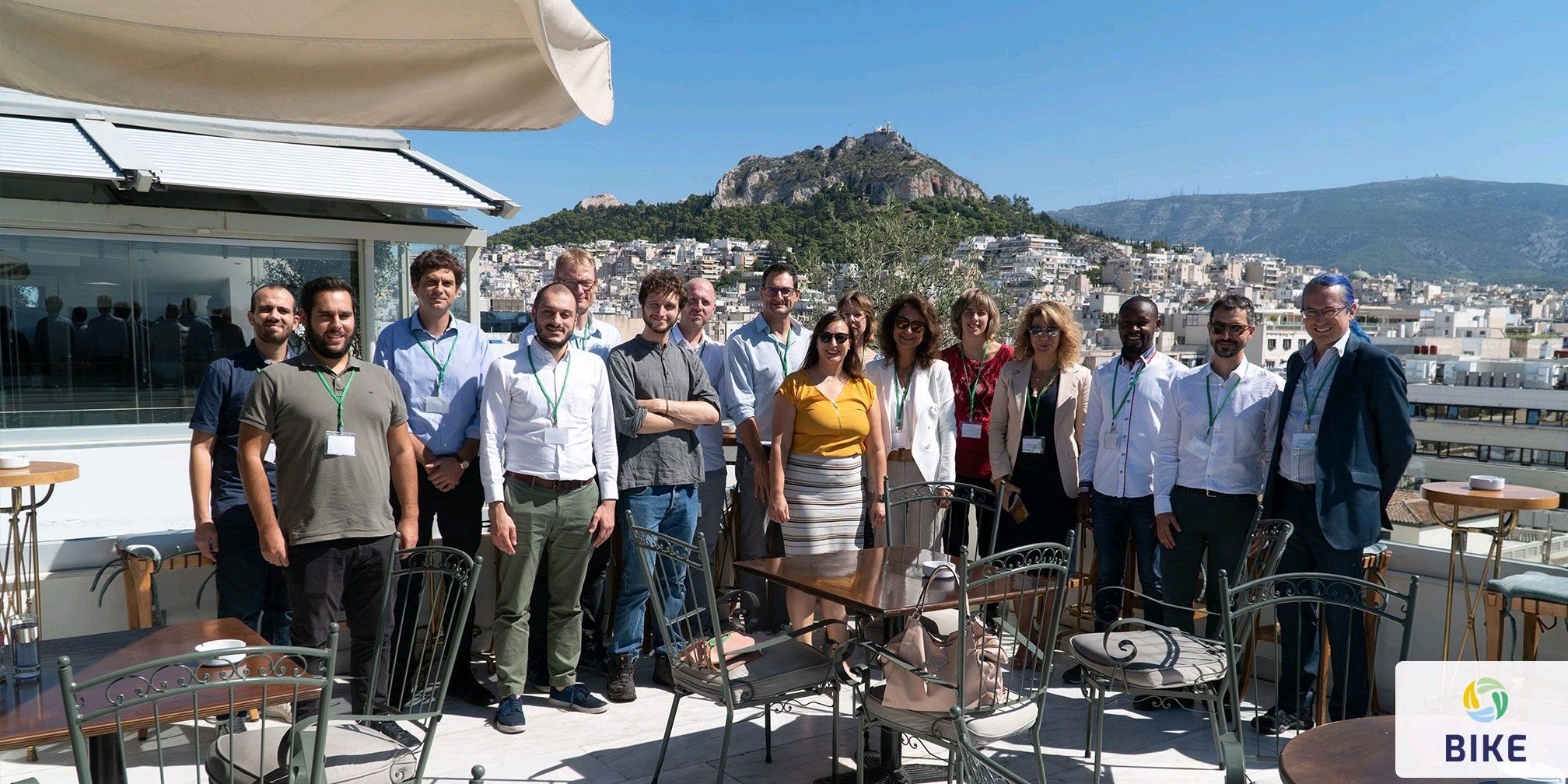After a long period of virtual meetings due to COVID-19 pandemic policies across Europe, on 28-29 September 2022, AKI staff participated in the EU-funded H2020 project BIKE Progress meeting led by the Renewable Energy Consortium for Research and Demonstration (RE-CORD) in Athens-Greece. This was the first in-person meeting since the Project’s inception, where the 13 consortium partners exchanged the completed and ongoing tasks and also discussed the future project activities.
On the first day, led by the project Coordinator, consortium partners reported on the updates that were made to deliverables following the Mid-term review, all of which have now been officially accepted by the European Commission. In addition, the meeting provided an excellent opportunity for project partners to report on work packages (WP1-WP8), take stock, and share their progress and lessons learnt. It was also an ideal occasion for the BIKE consortium to discuss upcoming deliverables, ethical guidelines, data management, and the communication and publication strategy for the remaining period to ensure the successful completion of the project as envisioned.
On the second day, the consortium members had the opportunity to participate in the Project’s 2nd Open Lab in Central Greece at Aliartos, 130 km North of Athens organised by the Centre for Renewable Energy Sources (CRES). AKI staff had the opportunity to visit and benchmark the field trials on climate-positive farming practices on marginal and degraded lands for agricultural biomass feedstock production based on low-ILUC risk sustainability principles. CRES presented state-of-the-art research field trials on the potential of perennial grasses like Giant reed (Arundo donax), Miscanthus giganteus and Switchgrass (Panicum virgatum), oil seed crops like Camelina sativa and Castor bean (Ricinus communis), as well as fiber crops including Sunn hemp (Crotalaria juncea), Industrial hemp (Cannabis sativa ssp. sativa) and Kenaf (Hibiscus cannabinus) on a biobased economy in a sustainable way. These practices are being scaled up to promote market uptake of biofuels and diversification of the agricultural feedstocks to ensure Agricultural, Forest and Energy sectors sustainably reduce their environmental effects and increase the share of renewable energy.

For the upcoming period, AKI will continue to contribute to the success of the project by evaluating the enabling policies at the European level to pinpoint areas of intervention by policymakers and stakeholders to accelerate low-risk ILUC Bioenergy production in relation to the EU Delegated Act for Sustainable European Bioeconomy. Keep tuned to AKI and BIKE websites for more updates on the BIKE project.



 HU
HU




